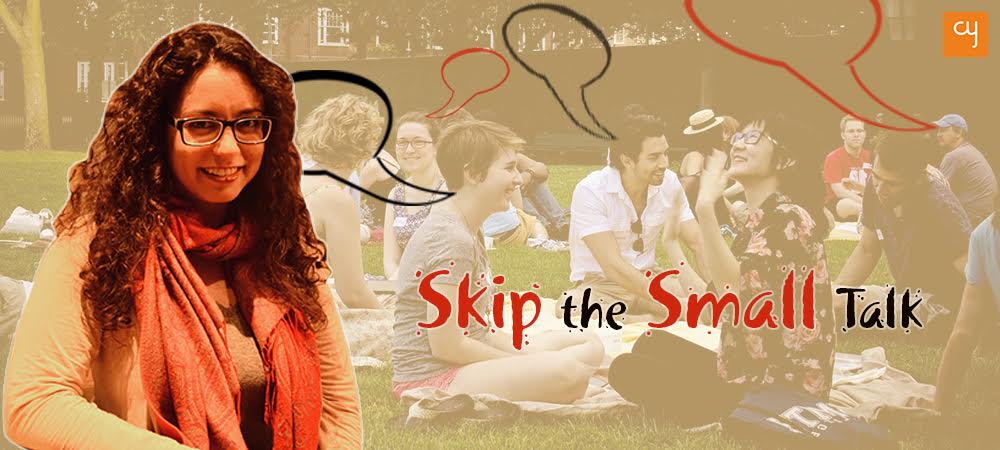Can there be a world without small talk? Find out with founder of Boston’s Skip the Small Talk
Do you silently hate braving small talk at every social event? Meet Ashley Kirsner whose events at a Boston bar make it possible to have meaningful conversations with absolute strangers. For Ashley, it’s all about practising vulnerability.
Do you silently hate braving small talk at every social event? Have you always wished that there were another way to network and meet people without having to endure a 30-minute discussion on the weather? Have you cringed when the question ‘what do you do’ crops up? If you said yes to one or more of these, welcome to humankind. Everybody hates small talk and yet we go on doing it. But every two weeks in Somerville, there’s a group of people who meet at Aeronaut Brewing Co. to discuss such things as: If you were going to become close friends with me, what would I need to know about you? What book or movie has had the biggest impact on how you see the world and why? In what ways are you different from the way you were 5 years ago?
Ashley Kirsner had a nagging feeling that something was missing in the way we interact with one another, since her time volunteering at a suicide hotline in Boston. All of her callers thought they couldn’t tell the people in their lives what they’re going through. But when asked if they would want their friend/mom/dad to tell them about their problems, all of them said ‘of course’. Sensing a big disparity between how vulnerable we wish others to be, but how little we think it’s okay to be vulnerable ourselves, Ashley set about trying to prove that we really can be more vulnerable than we think we can. Sensing that we’re all really frustrated with not being able to see the internal lives of one another, she hosted her first Skip the Small Talk dinner in Boston on a whim. Not expecting more than ten people to turn up, Ashley was surprised that almost 600 people expressed interest in the event and tickets sold out like hotcakes.
Over the course of more than 2 years since, Ashley has rejected her Psychology PhD offers to organise over 54 events. At a Skip the Small Talk event, people can randomly pick from a stack of question cards and sit across the tables with multiple partners. The questions are based on the famous ‘36 questions to fall in love’ (which were originally about forming deep connection, till New York Times spun the ‘love’ angle that made the study viral). The event is not only about talking though, it’s also about listening actively, asking questions and practising compassion.
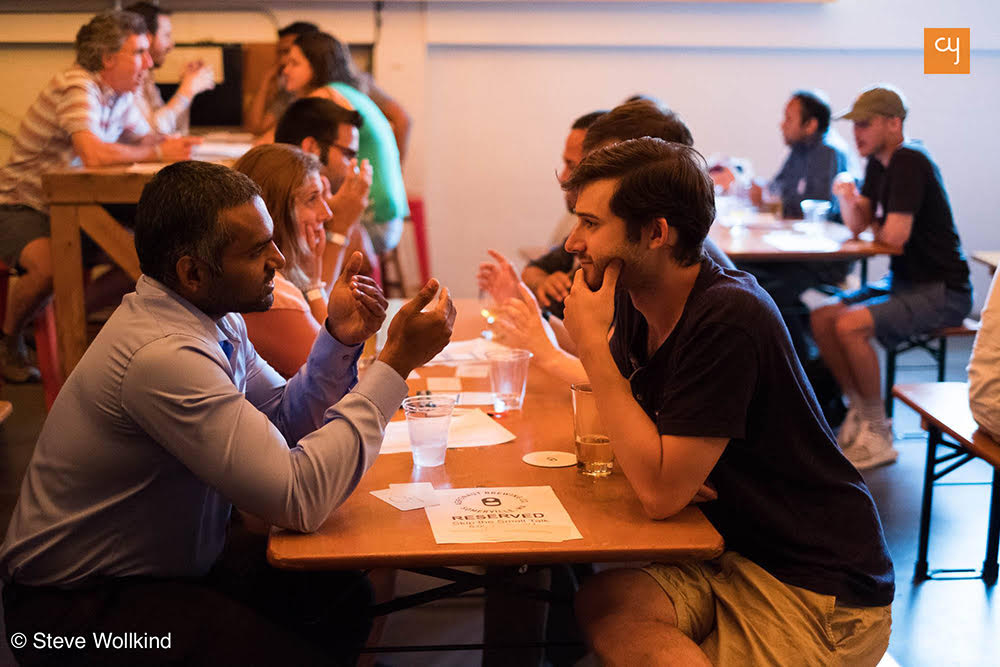
After the first conversation of every evening, Ashley always takes a poll. One of the question she asks everybody is whether they wished their partner had shared less. Across all her events so far, zero people have raised their hands to express this. People seem to be really more okay with our vulnerability than we think they are, Ashley’s concluding. I met with 29-year-old Ashley at a cafe in Boston to skip the small talk, so to say, to understand how she sees her work fitting into the broader cultural context.
What’s the purpose that’s guiding your work?
There are so many social needs that we’ve failed to address appropriately and we’re seeing the impact of that with mental health problems. I’m hoping to create a buffer so that you don’t have to reach a state of crisis. I’m hoping to offer a safer space for people to practice vulnerability. If you’re able to practice it in a setting where you can logically tell yourself that ‘even if this person hates hearing my story, I never have to see them again’, it can be powerful to experience what it’s like to have that go okay. And once you practice it enough here, you can apply it to your life. I’ve seen the process firsthand with people who tell me how their relationships have shifted over time after attending Skip the Small Talk, myself included!
It seems like there’s a real hunger for this, which is why you’re getting the kind of response you are.
That’s really true. I’ve spent a total of 30 dollars in advertising these past two years. I really encourage anyone who’s trying to connect people to just take a leap because every person I’ve seen working in this arena has been overwhelmed by the responses they’ve got. Researcher Brene Brown’s TEDx talk blew up beyond her wildest hopes; now she has a whole empire just based on the concept that vulnerability is worth our time. As long as the work is accessible to people, people are excited. Honestly when I hosted the first event, it didn’t occur to me that I might want to do another one. It feels like I was just riding a wave that was coming my way. I just chose to listen to what people were begging for.
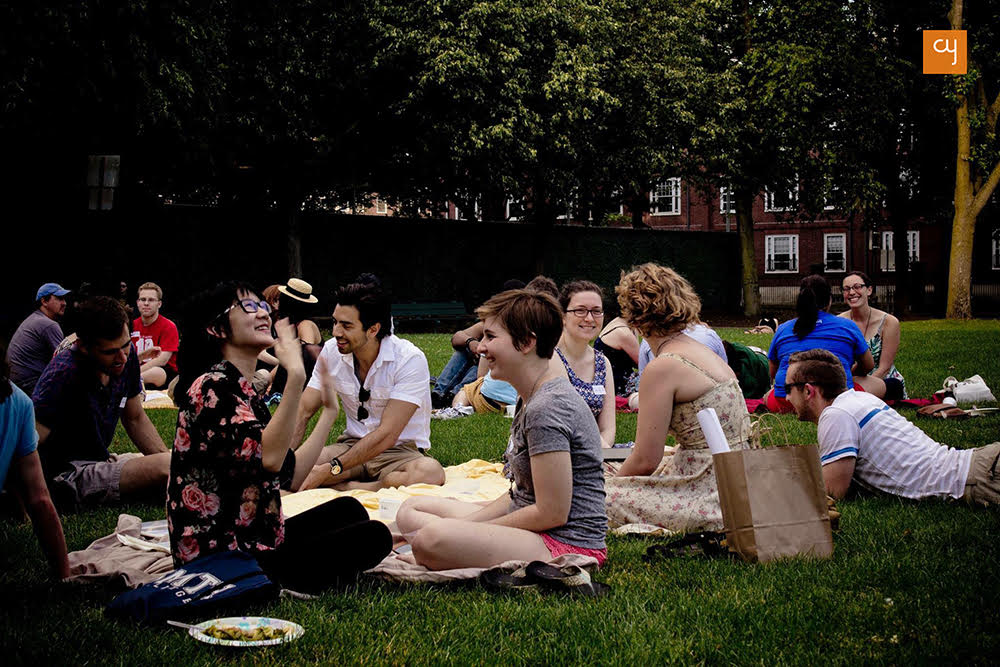
Your event seems to be an introvert’s heaven! Any thoughts on that?
The most grateful testimonials I get are often from introverts who say that they really do need social interaction but hate small talk. I’m glad that we’re paying more attention to that. Our social norms aren’t set up to adequately address our social needs. Can we all agree to change our norms a little if it’s not working for most of us? Why are we doing it?
What I like about how you’re doing this is that you’ve packaged wisdom from an almost spiritual reality in a way that’s so accessible and ‘cool’. Your website mentions that the event draws on mindfulness, but I don’t recall this from the event I attended?
I’m actually glad to hear that because I try to not call it ‘mindfulness’ when I do it. One of the norms we set at the beginning is to notice feelings as they come up and let them pass in their own time. That’s because suppressing emotions that are challenging leads to them sticking around for a long time. Another piece from the event is to ask people about one thing that they already do in conversation in a group and one thing that they’d like to do differently. This brings some awareness to how they’re acting in conversation. We can get so entrenched in our conversational habits. It’s not something we tend to question. I’m glad it doesn’t smell of mindfulness though because some people just have a bias against anything that’s related to meditation, even when it’s empirically helpful. And I’m glad to introduce that to populations that might otherwise be skeptical.
I like how you’re, in a way, disguising that wisdom in a more acceptable format.
Ya, I think one of the things we’re doing is offering things that a lot of the more alternative communities have hit on which the research world has found are actually pretty effective. But because they’re associated with these communities, a lot of people are skeptical about them. I’m really happy to offer a vehicle in which people who might otherwise not have access to these can access them. This work definitely feels about as close to a spiritual experience as I get. It’s in that moment when I look out at 70 people having conversations and everyone’s body language is so present and so engaged, and then I see the looks on people’s faces as they feel really truly seen and understood and listened to. It’s seeing everybody challenging themselves and being a really meaningful version of themselves for two hours. It’s really powerful for me to see. I have been really fortunate to have that be such a big element in what I do.
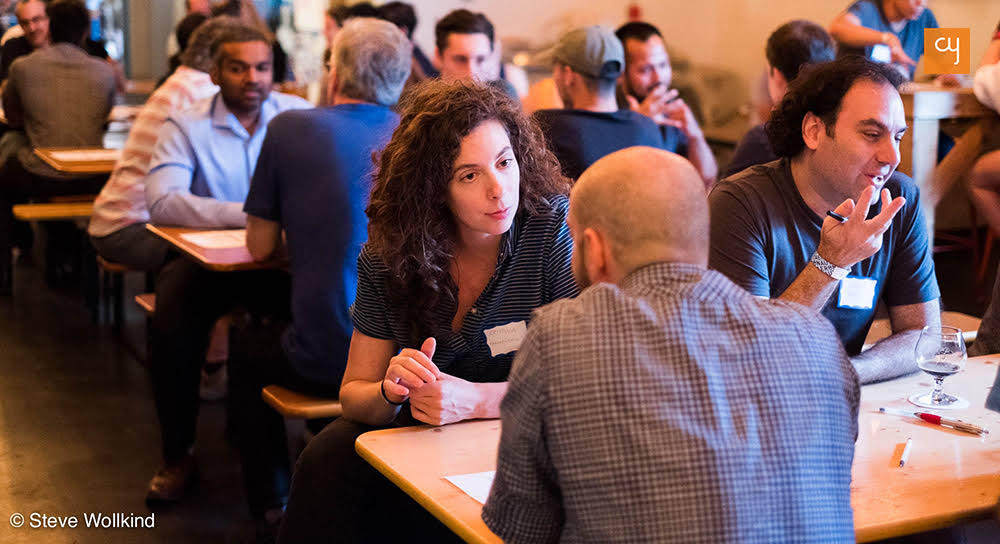
Where do you see this going ten years down the line?
Right now, I’m excited about seeing Skip the Small Talk in major cities in the US, and in places internationally. I’d love to see it be a ‘thing’ that if you’re in a new town and you’re lonely, you have a place to go; that if if you just want to practice vulnerability, you can visit somewhere and check out their Skip the Small Talk branch. I know when I was in New York, the only option I had was to walk into a bar and talk to a stranger. But I wished there were a non-romantic context for me to do that in.
Do you think we’ll ever have a world where practising vulnerability is normal in everyday conversation?
I think it’s very possible. I think we’re at a key moment right now where people are excited about vulnerability. But I do think, annoyingly, that the path to that may be laced with statements like, “Vulnerability makes people closer to each other, which increases productivity and helps decrease the number of visits to a doctor.” Putting it in concrete terms like these is unfortunately what I think our route is going to look like.
What do you think it’ll look like when that happens? When I meet someone on the street, instead of saying ‘how are you’, what happens?
You might still say ‘how are you’! I often wonder if what we’re going to do as a society is swing the pendulum all the way in the other direction where we will just go up to strangers and ask them about their deepest hopes and fears. And I’m hoping at some point we’ll middle out. I’ve seen this in smaller communities, where they’re really invested in opening up to each other, that there are side effects to that. If you’re doing that indiscriminately, there are a lot of tensions that come up around boundaries. You’re going to burn out. You’re going to end up getting close to people you might not have wanted to get close to and sacrificing closeness with other people. As a society, there’s a chance we’ll err on that side and then middle out. I’m optimistic though, that with vulnerability being okay, people are going to speak up about their problems. We see that with the MeToo movement. People are finally coming out about these things that have been true for so long. We’ve watched people be heard and taken seriously. The vulnerability movement and MeToo movements are so inextricably linked. Oppressed minorities talking about what their life actually is like in America is making us aware of what that looks like, and open to making systemic changes. As we hear more about people’s internal lives, the more we can accommodate people’s needs and make them feel welcome in the world.
So how you’re seeing it is that it starts with vulnerability and leads to systemic change?
That is my hope, yes. I think that the equation is: Vulnerability + Time + Compassion = Systemic Change. We definitely need to be carving out space for these people and hearing them out.
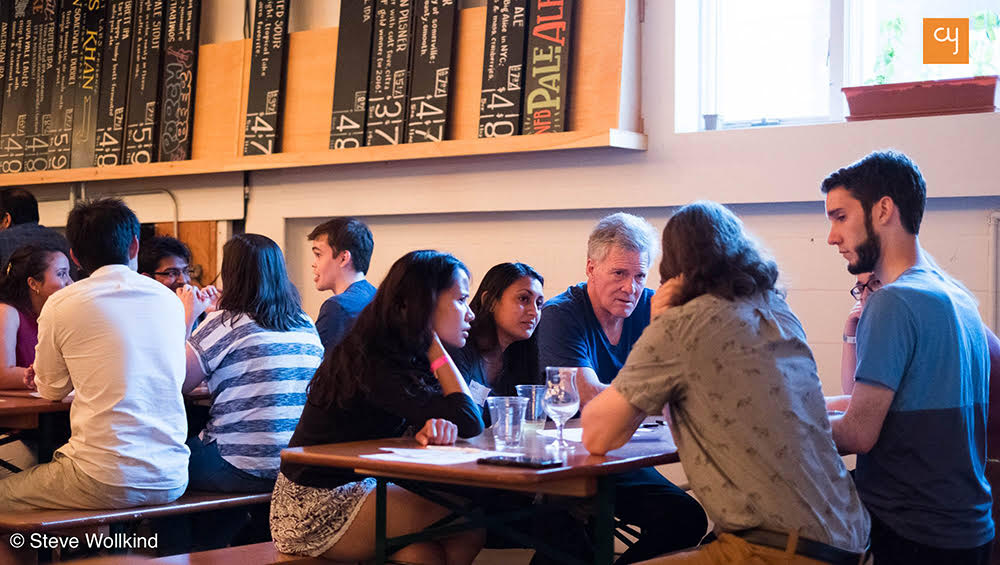
What other settings do you imagine Skip the Small Talk playing out in?
I work a lot with college students because they’re in such a great stage in their lives to really be open to new things. I feel like the younger you can get to someone, the better; to teach kids early on that it’s okay to share with people. I also see this happening in retirement homes, where isolation is really high. People have asked me to organize networking events, which is great because I hate networking events. It’s all small talk! It’s everyone wanting something more but not really knowing how to get there.
Is a vulnerable conversation at all possible in a normal social situation or is it always awkward without a structured format?
It is possible and awkwardness might be the price you pay to have that conversation. I think it’s harder to pull this off with a stranger without a kind of format but I think it’s possible to build a relationship where this becomes the norm over time.
Do you think it helps to know beforehand that we’re stepping into a ‘different’ kind of space, so that we’re mentally prepared for it?
Ya, like a switch. I guess that alone does the trick, like if you had a dinner and called it a ‘No Small Talk Dinner’. Although I do notice a paradoxical effect where if you say ‘Okay, let’s skip the small talk,’ but don’t give any structure, people will automatically talk about the weather and be even more boring than normal! I have noticed that pretty consistently. I’ve tried this in one of my very first events, where I gave people stickers that said ‘Skip the small talk with me’. People wore the sticker but would then go on to have the most boring conversations. It was a failed social experiment (laughs). It made it clear that if you don’t have the structure, people are going to do the easiest thing possible unless they’re being really cognizant of their social habits.
Do we just not know what to say in such situations or do we just switch to a default mode before we know it?
I think it’s hard to believe that it’s really okay. I think even if you have one canned sentence like ‘What are all your hopes and dreams?’, it’s hard to have those combination of words come out of your mouth when that would be so unheard of in everyday conversation.
I like to see small talk as a kind of stag hunt behavioral economic scheme where everyone would benefit if everyone were talking about more meaningful stuff, but nobody wants to be the first person to dive in. So you end up in a conundrum where the best way to get through it is to just go for it and hope that others will cooperate and meet you there.
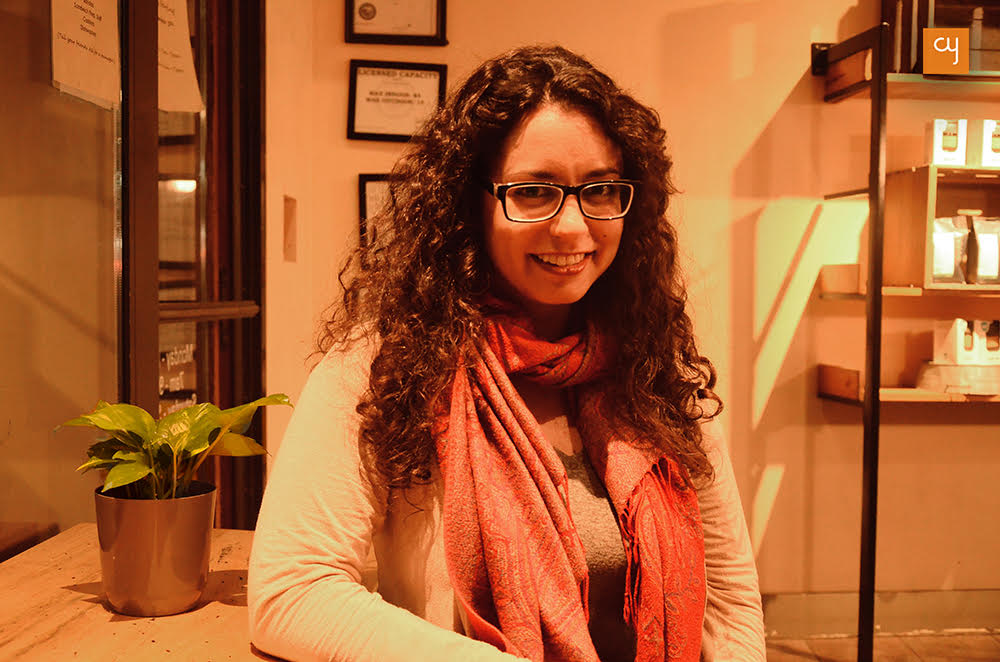
Yatra Archives

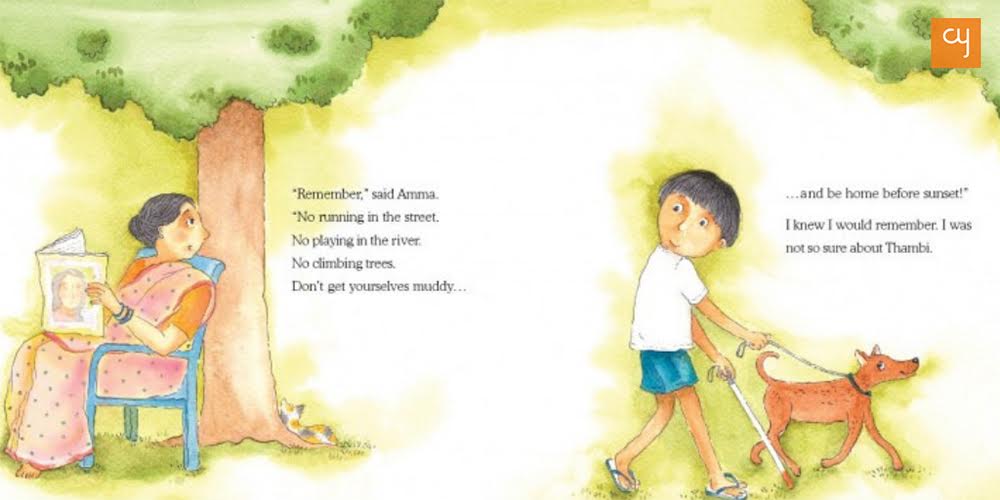 How Tulika Books is creating impact in children’s lives through picture books
Nandini Varma
How Tulika Books is creating impact in children’s lives through picture books
Nandini VarmaAug 21, 2019
A children’s book about a boy who feels like a girl. And about a child brought up by grandfathers. These are some of the stories published by Tulika Books, who have been making children’s picture books since 23 years. Little…
 Dalgona Coffee: A worldwide social media trend about home-made café experience
Harshil Shah
Dalgona Coffee: A worldwide social media trend about home-made café experience
Harshil ShahApr 2, 2020
While the lockdown has ignited various trends on social media, one that has received a major global following is #DalgonaCoffee. With thousands of posts on its name, here’s all you need to know about the Dalgona Coffee wave. I first…
 Leonardo, Michelangelo, Raphael and Donatello—Artists or Teenage Mutant Ninja Turtles characters?
Harshil Shah
Leonardo, Michelangelo, Raphael and Donatello—Artists or Teenage Mutant Ninja Turtles characters?
Harshil ShahNov 5, 2019
Did you ever wonder where the Teenage Mutant Ninja Turtles’ characters got their names from? Well, your search is complete. Here is a brief introduction of the artists from whom the creators of TMNT took inspiration. Teenage mutant ninja turtles,…
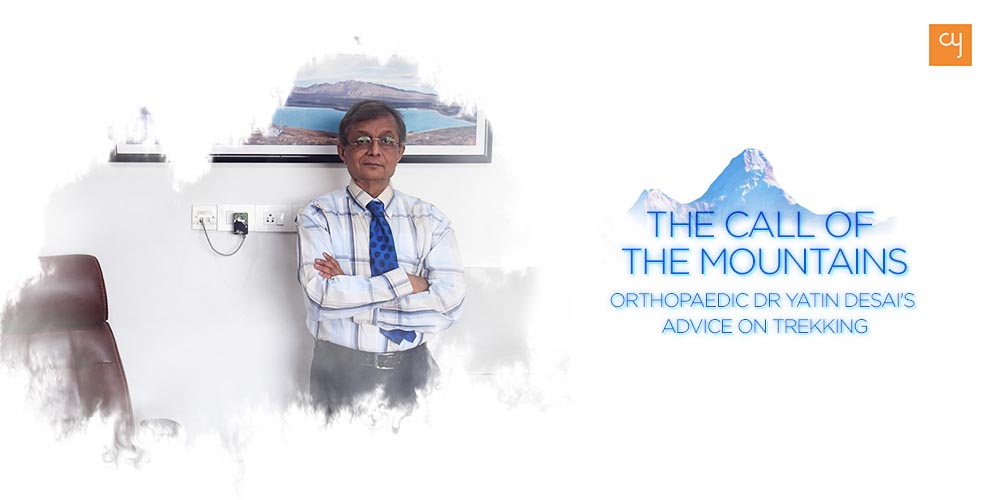 The call of the mountains: orthopaedic Dr Yatin Desai’s advice on trekking
Himanshu Nainani
The call of the mountains: orthopaedic Dr Yatin Desai’s advice on trekking
Himanshu NainaniMay 24, 2019
In this piece 64 year old Dr Yatin Desai, shares with CY his inspiring story of how to scale towering mountains with utmost ease and how this life adventure activity can shape human character and health. Chances are high that…


